Hyundai i30 vs Toyota C-HR - Differences and prices compared
Compare performance (140 HP vs 223 HP), boot space and price (24000 £ vs 29100 £) at a glance. Find out which car is the better choice for you – Hyundai i30 or Toyota C-HR?
Costs and Efficiency:
Looking at overall running costs, both models reveal some interesting differences in everyday economy.
Hyundai i30 has a clearly perceptible advantage in terms of price – it starts at 24000 £, while the Toyota C-HR costs 29100 £. That’s a price difference of around 5143 £.
Fuel consumption also shows a difference: Toyota C-HR manages with 0.80 L and is therefore significantly more efficient than the Hyundai i30 with 5.70 L. The difference is about 4.90 L per 100 km.
Engine and Performance:
Power, torque and acceleration say a lot about how a car feels on the road. This is where you see which model delivers more driving dynamics.
When it comes to engine power, the Toyota C-HR has a clearly perceptible edge – offering 223 HP compared to 140 HP. That’s roughly 83 HP more horsepower.
In acceleration from 0 to 100 km/h, the Toyota C-HR is evident quicker – completing the sprint in 7.40 s, while the Hyundai i30 takes 9.60 s. That’s about 2.20 s faster.
In terms of top speed, the Hyundai i30 performs barely noticeable better – reaching 197 km/h, while the Toyota C-HR tops out at 180 km/h. The difference is around 17 km/h.
Space and Everyday Use:
Cabin size, boot volume and payload all play a role in everyday practicality. Here, comfort and flexibility make the difference.
Both vehicles offer seating for 5 people.
In curb weight, Hyundai i30 is to a small extent lighter – 1291 kg compared to 1505 kg. The difference is around 214 kg.
In terms of boot space, the Toyota C-HR offers somewhat more room – 447 L compared to 395 L. That’s a difference of about 52 L.
In maximum load capacity, the Hyundai i30 performs slightly better – up to 1301 L, which is about 146 L more than the Toyota C-HR.
When it comes to payload, Hyundai i30 slightly takes the win – 509 kg compared to 425 kg. That’s a difference of about 84 kg.
Who comes out on top?
Overall, the Toyota C-HR shows itself to be outperforms in nearly all aspects and secures the title of DriveDuel Champion.
It convinces with the more balanced overall package and proves to be the more versatile choice for everyday use.

Toyota C-HR
Costs and Consumption
View detailed analysis
Engine and Performance
View detailed analysis
Dimensions and Body
View detailed analysis
Hyundai i30
The Hyundai i30 proves that sensible can also be stylish, offering a confident driving character wrapped in neat, modern design. It serves up a roomy, well-equipped cabin and composed ride that make everyday motoring feel like a clever purchase rather than a compromise.
details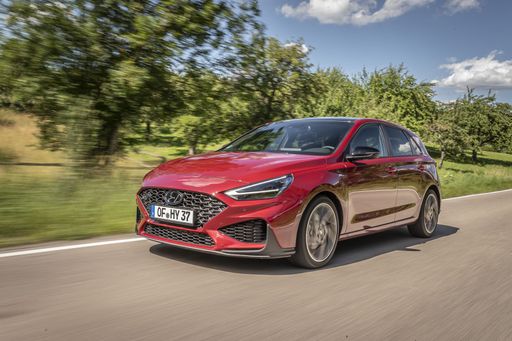
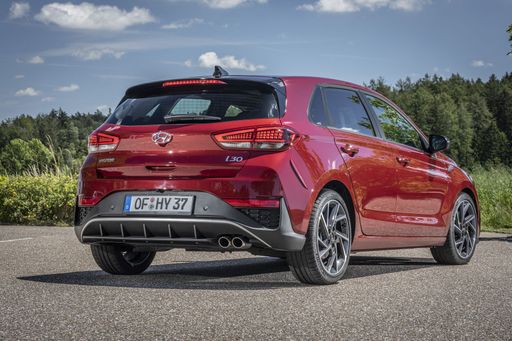
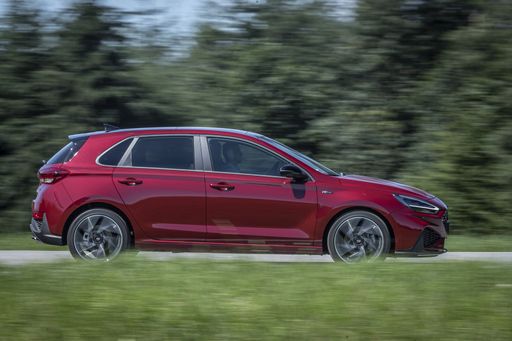
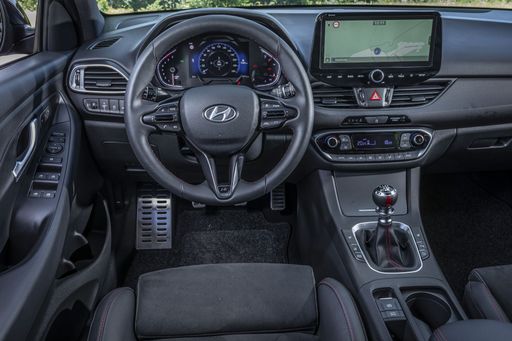
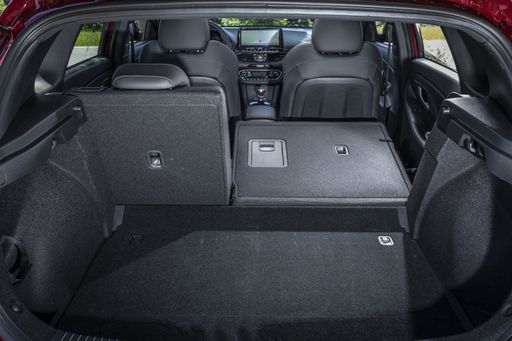
Toyota C-HR
The Toyota C-HR cuts a striking figure with its angular styling and coupe-like profile, so you’ll never go unnoticed in the supermarket car park. It balances everyday practicality with a nimble, city-friendly personality, making routine commutes feel a touch more fun without asking for forgiveness.
details





|

|
|
|
|
Costs and Consumption |
|
|---|---|
|
Price
24000 - 29300 £
|
Price
29100 - 42800 £
|
|
Consumption L/100km
5.7 - 6 L
|
Consumption L/100km
0.8 - 5.1 L
|
|
Consumption kWh/100km
-
|
Consumption kWh/100km
-
|
|
Electric Range
-
|
Electric Range
68 km
|
|
Battery Capacity
-
|
Battery Capacity
-
|
|
co2
130 - 136 g/km
|
co2
17 - 115 g/km
|
|
Fuel tank capacity
50 L
|
Fuel tank capacity
43 L
|
Dimensions and Body |
|
|---|---|
|
Body Type
Hatchback
|
Body Type
SUV
|
|
Seats
5
|
Seats
5
|
|
Doors
5
|
Doors
5
|
|
Curb weight
1291 - 1407 kg
|
Curb weight
1505 - 1755 kg
|
|
Trunk capacity
395 L
|
Trunk capacity
350 - 447 L
|
|
Length
4340 mm
|
Length
4362 mm
|
|
Width
1795 mm
|
Width
1832 mm
|
|
Height
1455 mm
|
Height
1558 - 1564 mm
|
|
Max trunk capacity
1301 L
|
Max trunk capacity
1076 - 1155 L
|
|
Payload
463 - 509 kg
|
Payload
375 - 425 kg
|
Engine and Performance |
|
|---|---|
|
Engine Type
Petrol, Petrol MHEV
|
Engine Type
Full Hybrid, Plugin Hybrid
|
|
Transmission
Manuel, Automatic
|
Transmission
Automatic
|
|
Transmission Detail
Manual Gearbox, Dual-Clutch Automatic
|
Transmission Detail
CVT
|
|
Drive Type
Front-Wheel Drive
|
Drive Type
Front-Wheel Drive, All-Wheel Drive
|
|
Power HP
100 - 140 HP
|
Power HP
140 - 223 HP
|
|
Acceleration 0-100km/h
9.6 - 13.1 s
|
Acceleration 0-100km/h
7.4 - 9.9 s
|
|
Max Speed
178 - 197 km/h
|
Max Speed
175 - 180 km/h
|
|
Torque
172 - 253 Nm
|
Torque
-
|
|
Number of Cylinders
3 - 4
|
Number of Cylinders
4
|
|
Power kW
74 - 103 kW
|
Power kW
103 - 164 kW
|
|
Engine capacity
998 - 1482 cm3
|
Engine capacity
1798 - 1987 cm3
|
General |
|
|---|---|
|
Model Year
2024
|
Model Year
2024 - 2025
|
|
CO2 Efficiency Class
D, E
|
CO2 Efficiency Class
C, B
|
|
Brand
Hyundai
|
Brand
Toyota
|
What drive types are available for the Hyundai i30?
Available configurations include Front-Wheel Drive.
The prices and data displayed are estimates based on German list prices and may vary by country. This information is not legally binding.
